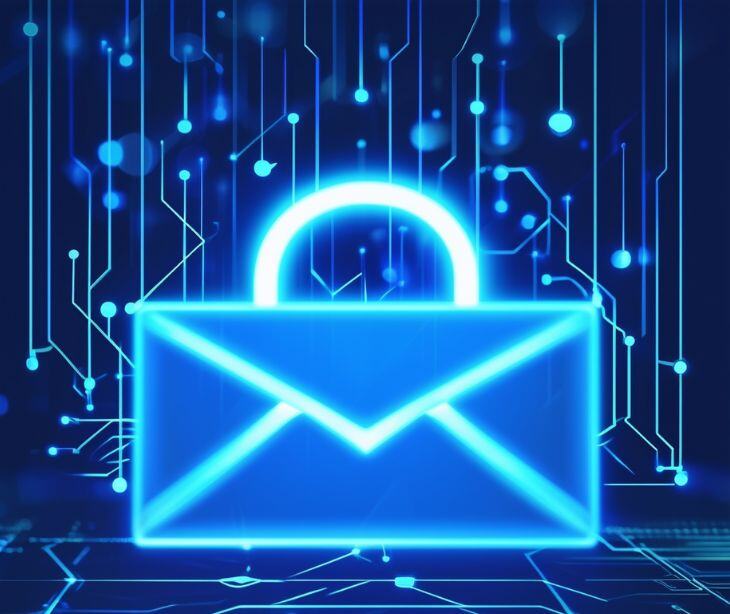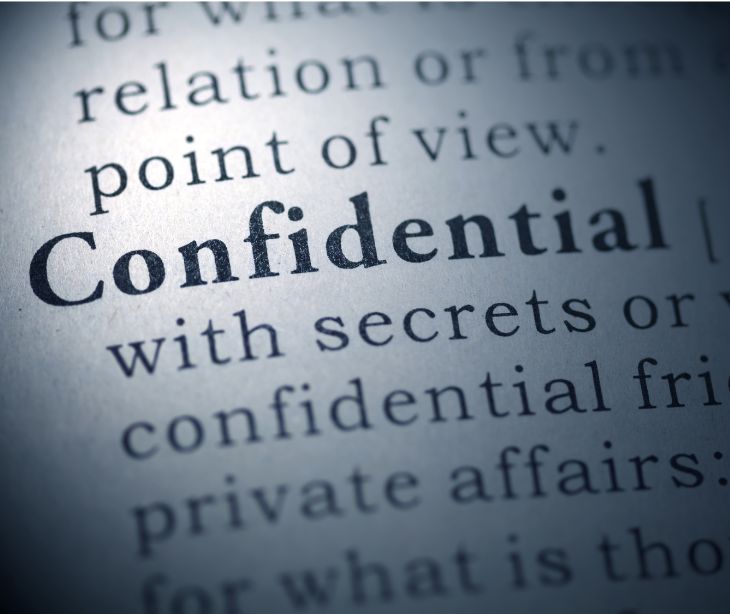
HIPAA compliant email is not a one-size-fits-all solution. Different healthcare specialties face unique challenges and have specific communication needs. While the core principles of HIPAA apply across all healthcare settings, the practical application of these principles can vary significantly depending on the specific type of patient information being handled and the communication workflows of each specialty.
Understanding these nuances is important for providing effective and ethical care in the digital age. A systematic review of email in patient-provider communication published in Patient Education and Counseling found that both patients and providers recognize the benefits of email but also share concerns about confidentiality and security. This reinforces the need for HIPAA compliant practices that address these concerns and build trust.
Why a specialty-specific approach to HIPAA email matters
A tailored approach to HIPAA email is important for several reasons:
- Varying levels of sensitive information: Different specialties handle different types of protected health information (PHI). Mental health providers, for instance, deal with highly sensitive information about patients' mental and emotional states, while dentists handle information about oral health. The level of sensitivity dictates the necessary security measures.
- Different communication needs: Communication workflows vary. A mental health provider might have ongoing email exchanges with patients between appointments, while a radiologist might primarily use email for sending reports. These different patterns require tailored email security solutions.
- Specialty-specific regulations: Some specialties have additional regulations beyond HIPAA. For example, substance use disorder treatment programs must comply with 42 CFR Part 2, which imposes stricter confidentiality requirements. An article on privacy protection for patients published in the Substance Abuse and Rehabilitation journal with substance use problems explains that 42 CFR Part 2 prohibits the disclosure of any patient information that could identify a patient as having substance use issues without their written consent. This has significant implications for email communication in these settings. While HIPAA allows for some disclosures of PHI without patient authorization (e.g., for treatment, payment, or healthcare operations), 42 CFR Part 2 generally requires written consent for any disclosure of identifying information. This means that even routine communications, like appointment reminders or billing statements, might require explicit patient consent if they could reveal the patient's participation in a substance use disorder treatment program. Therefore, substance abuse treatment providers must be particularly cautious when using email and implement strict security measures to protect patient confidentiality. The researchers also note that the limited application of 42 CFR Part 2 to specialized facilities and its discrepancies with HIPAA create challenges for integrating substance abuse care with mainstream medical care. This shows the need for clear guidance and specialized training for staff on the specific email communication requirements in these settings.
- Patient expectations: Patient expectations about communication vary. Patients might expect more frequent communication from their therapist than from their dermatologist. Tailoring your style can improve satisfaction.
HIPAA email in mental health
Mental health providers handle exceptionally sensitive PHI, often requiring a high level of security. Email communication in this field requires careful consideration of patient privacy and confidentiality. A discussion on HIPAA privacy regulations and the constraints on sharing mental health information provides valuable context for these concerns. The discussion explains that under HIPAA, "psychotherapy notes," which document or analyze the contents of counseling sessions, require a higher level of protection than other PHI. These notes are distinct from other mental health records and may only be disclosed with explicit patient authorization.
This has significant implications for email communication. Mental health providers should avoid including psychotherapy notes in emails unless they have obtained specific authorization from the patient. Even then, they should ensure the email is encrypted and sent through a secure platform.
Updates to the HIPAA Privacy Rule propose modifications that would allow increased disclosures of PHI for mental health care in specific circumstances. Understanding these modifications is important for mental health providers. Given the sensitive nature of mental health information, end-to-end encryption is highly recommended for all email communications containing PHI. Secure messaging platforms designed for healthcare can offer a HIPAA compliant way for therapists to communicate with patients between appointments. Regular staff training on HIPAA compliant email practices is very important in this field, as accidental disclosures can have serious consequences for patients.
HIPAA email in dentistry
Email in dentistry often involves appointment reminders, treatment plans, and billing information. While not as sensitive as mental health information, this data still requires protection under HIPAA. A study of Indiana dentists from JMIR Publications found that nearly all dentists (99.5%) considered patients’ medical histories highly or moderately important for confirming no contraindications (such as allergies or medication interactions) and determining the need for antibiotic prophylaxis. This reveals the importance of protecting the confidentiality of this information when communicating via email. The study also found that the most needed information categories for dentists were medical conditions or diagnoses, current medications, and allergies. This shows the types of information that should be protected when shared via email. The study also found that while most dentists considered patient-reported medical histories reliable, they faced challenges obtaining complete and timely information from patients and physicians. This suggests that secure email communication could play a valuable role in improving communication and information exchange between dentists, patients, and physicians. Furthermore, the study found that a significant percentage of dentists (70.2%) were willing to use an HIE (health information exchange) to access or share patient information. This indicates a growing interest in secure electronic information exchange in dentistry, which could further enhance the role of HIPAA compliant email.
HIPAA email in other specialties
Beyond mental health and dentistry, HIPAA compliant email is necessary for all healthcare specialties. Here are some examples of how different specialties can tailor their approach:
Physical therapy
Email communication in physical therapy often involves appointment scheduling, sharing exercise instructions, and providing updates on patient progress. Using secure email protects this information and maintains patient privacy. As a study on patient trust and privacy by the American Medical Informatics Association (AMIA) notes, patients are more likely to trust providers who demonstrate a commitment to protecting their health information. This is particularly important in physical therapy, where building rapport and trust with patients is required for effective treatment.
Radiology
Radiologists frequently use email to transmit reports and images to referring physicians. Ensuring these communications are secure and HIPAA compliant is needed for protecting patient data and maintaining the integrity of medical records. The study on patient-provider communication also found that email content often includes medical information exchange, proving the need for secure email practices in specialties like radiology.
Internal medicine
Internal medicine physicians often use email for communicating with patients, consulting with specialists, and managing referrals. A HIPAA compliant email platform can streamline these communications while ensuring patient privacy. The proposed modifications to the HIPAA Privacy Rule aim to facilitate care coordination and case management, which could impact how internal medicine physicians use email to share PHI for these purposes.
Pediatrics
Email communication in pediatrics often involves communicating with parents or guardians about their child's health information. Ensuring these communications are secure and comply with HIPAA is vital for protecting children's privacy. Researchers in the study on email in patient-provider communication found that email is increasingly used in pediatric primary care, with email inquiries often focusing on non-acute issues and medical information exchange.
Dermatology
Dermatologists might use email for appointment reminders, follow-up instructions after procedures, or sharing telehealth consultations. HIPAA compliant email ensures these communications are secure.
Optometry
Email in optometry can be used for appointment scheduling, sending prescription information, or sharing eye health tips. Secure email protects patient data and maintains confidentiality.
Chiropractic
Chiropractors can use email for appointment reminders, sharing exercise instructions, or providing updates on treatment plans. HIPAA compliant email safeguards patient information. A research article on HIPAA and practice-based research published in the Journal of Manipulative and Physiological Therapeutics discusses the challenges of maintaining HIPAA compliance in chiropractic settings, such as lack of staff training, difficulty implementing secure EHR systems, and confusion about consent requirements, and offers solutions for protecting patient privacy and ensuring data security, including best practices for email communication.
FAQs
My specialty isn't mentioned in this article. How can I determine the specific HIPAA email requirements for my practice?
While this article provides guidance for several specialties, HIPAA regulations apply to all healthcare providers who handle PHI. Start by reviewing the HIPAA Privacy and Security Rules for detailed information on protecting patient data, including email communications. Consult with a healthcare attorney or HIPAA compliance expert for guidance specific to your specialty. You can also check with your professional association for specialty-specific resources or guidelines.
Do I need to use a different email platform for each healthcare specialty in my practice?
You can use a single HIPAA compliant email platform for all specialties, as long as it meets the requirements for protecting the most sensitive PHI handled by any specialty in your practice. However, you might need to tailor your email communication practices and policies for each specialty to address specific workflows, patient expectations, and any additional state or federal regulations.
How can I balance patient expectations for communication with HIPAA's privacy requirements?
Balancing patient expectations with HIPAA privacy involves clear communication and informed consent. Explain to patients the importance of protecting their health information and the limitations of non-secure communication methods. Offer secure alternatives, like HIPAA compliant email, and obtain their consent for the chosen communication method. Document these conversations and preferences in the patient's record.
If a patient asks me to communicate with them using a non-secure platform, how should I respond?
Politely explain the risks of using non-secure platforms for sharing health information, including potential HIPAA violations and privacy breaches. Offer HIPAA compliant alternatives, such as encrypted email, and emphasize your commitment to protecting their privacy. If the patient insists on using a non-secure platform, clearly document their request and your explanation of the risks in their medical record. Avoid sharing any PHI via the non-secure platform, even with the patient's consent, as this could still violate HIPAA.
Subscribe to Paubox Weekly
Every Friday we'll bring you the most important news from Paubox. Our aim is to make you smarter, faster.




